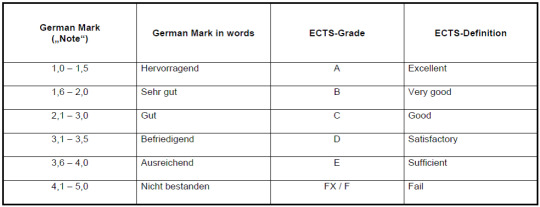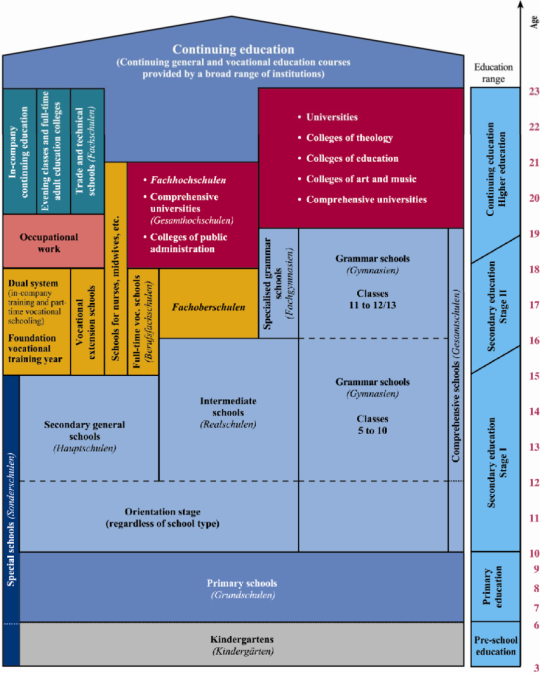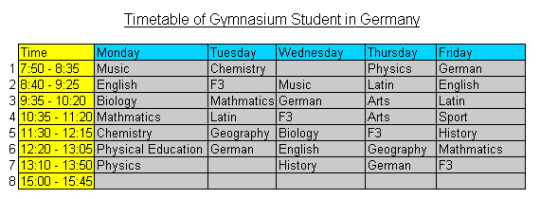#Secondary English Tuition
Text
Why Do You Think Your Kid Might Need English Tuition?
Even though English is our first language, English tuition centres are rapidly becoming very popular in Singapore. Many students want to learn the language, but some have downplayed its importance. Here are some reasons your child might need to start learning English immediately.
Help Your Child Get Better at Spoken English.
The best thing about having your child attend an English tuition centre is that their English improves. You might be surprised to learn that most people can write perfect English, but when they speak it, they make many mistakes.
Get Proper Attention.
The teacher will pay close attention to your child at an English tutoring centre. Some people don't like being in a big class because they think other people are better. The tutor can focus on what your child needs to learn. Your child won't have to be afraid of what other people say.
The Performance of Your Child in School Will Improve.
Your child's academic performance will improve drastically at an English tuition centre. Many international students fail because they can't grasp English. English tutoring helps students understand grammar and rules. It'll help students ace exams and assignments wherever they are.
Boost Your Child's Confidence.
English lessons help boost your child's confidence. Your child can talk to anyone, anywhere. This will enable your child to speak with corporate delegates and other significant figures.
Increase Better Job Opportunities for Your Child.
The biggest benefit of English lessons is that your child will have a better chance of getting a better job. There are a lot of people who can't find good jobs because they can't speak English well enough. People fluent in more than one language are in high demand because many businesses are going global. Your child will find the best job in any field and be hired for it.
One of the best places for your child to get help from experts is at a good Hougang tuition centre. Your child can write and speak English fluently no matter what.
1 note
·
View note
Text

Are you looking for the best English tuition Singapore? EduEdge is the only place to go! Our comprehensive and personalized English tuition program is designed to help students improve their English language skills and thrive academically. We provide a suitable environment for learning with a team of highly skilled and dedicated instructors where students may create a strong foundation in grammar, vocabulary, comprehension, and writing abilities. Join EduEdge today to realize your full English potential!
1 note
·
View note
Text
Ways to Choose the Right Secondary English Tuition Program for Your Child
"Empower your child's learning journey with these crucial tips for selecting the ideal secondary English tuition program. Elevate education together!
0 notes
Text
Best O Level English Tuition In Singapore

For students preparing for their O level exams, the best O level english tuition is one that provides a productive learning experience. In addition to practise papers, online tools, and feedback mechanisms, this may include personalized training, an exam-focused curriculum, and other learning materials to assist students. A solid tuition programme should also include trained and skilled tutors who can identify and address students' areas for progress. The curriculum should also create a warm and flexible learning environment that encourages students to actively participate in their studies and boosts their self-confidence.
Tutelage provides the best O Level English tuition in Singapore. Our trained and qualified teachers use unique teaching strategies to help students succeed in the subject. We provide a number of programmes and workshops, including O Level exam preparation, and we also strive to develop students' writing and speaking skills.
0 notes
Text

#primary school tuition#psle english oral#education#tuition#psle english tuition#secondary school tuition
0 notes
Text
Mastering O Level English in Singapore: Tips and Tricks

Preparing for the O Level English examination in Singapore can be a challenging yet rewarding experience. Success in this crucial subject opens doors to further education and future career opportunities. Here, we'll explore essential tips and resources to excel in O Level English.
Understanding the O Level English Exam Format
To succeed, start by understanding the format of the exam. It consists of various components, including Paper 1 (Writing), Paper 2 (Comprehension), and Paper 3 (Oral).
Building Strong Language Skills
Developing impeccable grammar, vocabulary, and writing skills is vital. Regular reading, vocabulary expansion, and grammar practice are essential.
Effective Time Management
Allocate time wisely during the exam. Practice with timed mock papers to improve your pacing.
Comprehension Techniques
Master strategies for tackling comprehension questions, such as skimming, scanning, and understanding inference.
Essay Writing Tips
Craft compelling essays with strong arguments, structure, and clarity. Practice essay writing on a variety of topics.
Oral Examination Preparation
Prepare for the oral component by practicing speaking and pronunciation regularly.
Conclusion
Succeeding in O Level English is achievable with dedication and effective study methods. If you're looking for additional support, consider English tuition for secondary students. Expert guidance can provide valuable insights and personalized instruction to help you reach your full potential in this crucial subject. Good luck with your O Level English journey!
1 note
·
View note
Text
Best English Tuition for Secondary Students in Singapore | Everdaytuition
Are you a secondary student in Singapore struggling with English? Do you find it challenging to grasp the complexities of the language and excel in your exams? Look no further! We have the solution for you - the best English tuition for secondary students in Singapore.
English is a crucial subject that plays a vital role in your academic journey. It not only helps you communicate effectively but also enhances your critical thinking and analytical skills. Excelling in English can open doors to various opportunities in the future, be it in higher education or your professional career.
At our English tuition centre, we understand the unique needs of secondary students and the challenges they face in mastering the language. Our team of experienced and dedicated tutors are here to guide you every step of the way. They have a deep understanding of the Singapore education system and are well-versed in the latest syllabus requirements.
Our tuition program is designed to cater to students of all proficiency levels. Whether you are struggling with grammar, vocabulary, comprehension, or writing skills, we have tailored lessons to address your specific needs. Our tutors employ interactive teaching methods, incorporating multimedia resources and engaging activities to make learning enjoyable and effective.
One of the key advantages of our English tuition program is the small class sizes. We believe in providing individual attention to each student, allowing them to ask questions, clarify doubts, and participate actively in discussions. This personalized approach ensures that no student is left behind and that everyone progresses at their own pace.
Furthermore, our tutors provide regular assessments and feedback to track your progress and identify areas for improvement. We also offer valuable exam strategies and techniques to help you excel in your English examinations. With their guidance and support, you will gain the confidence and skills needed to achieve outstanding results.
But don't just take our word for it - our track record speaks for itself. Many of our students have shown significant improvement in their English grades and have gone on to excel in their academic pursuits. Our success stories are a testament to the effectiveness of our tuition program.
So, if you are a secondary student in Singapore seeking the best English tuition, look no further. Join us today and embark on a journey towards English proficiency and academic success. Contact us to find out more about our tuition program and secure your spot in our next intake. Don't let English hold you back - unlock your full potential with the best English tuition for secondary students in Singapore!
#online english tuition singapore#best english tuition#secondary tutors near me#secondary school tutors#secondary school tutors near me#english tuition for secondary#secondary school tuition near me#eeverydaytuition#english tuition for secondary students#english tuition for secondary students singapore
0 notes
Text
Secondary English Tuition Review
With EduEdge's Total English Mastery System in our Secondary English Tuition Review sessions with EduEgde in Singapore, any student can learn English more easily, quickly, and intelligently and score higher on exams.
#secondary education#Secondary English Tuition Review#kids blog#education#kids#Secondary English Tuition
1 note
·
View note
Text
The Impact of Secondary English Tuition on Language Proficiency
Unlock your language potential with secondary English tuition! Discover expert tips and transformative techniques to elevate your communication skills. Whether you're a student or seeking personal growth, This post has all you need to enhance your language abilities. Don't miss out on this opportunity to excel in language learning!
#education#secondary english tuition#english writing#education tips#creative writing class#effective writing skills
1 note
·
View note
Text
Best O Level English Tuition
Looking for the best O level English tutoring in your neighbourhood? There is no need to look any further! A strong command of the English language is required for success in all aspects of life, and our experienced tutors can assist you to achieve your goal.
In Tutelage, we provide the best O level English tuition programme to give students a strong foundation in reading, writing, speaking, and listening. Our tutors have extensive experience teaching the most recent syllabus and exam techniques to help students excel in their exams. We also provide materials and resources to supplement classroom instruction.
Our classes are conducted in a supportive and engaging environment, where students are encouraged to ask questions, participate in discussions, and work collaboratively. Our small class sizes ensure that each student receives individual attention and personalised feedback.
Our best O level English tuition is committed to helping our students achieve their goals and reach their full potential. We believe that with the right guidance and support, any student can excel in English and achieve academic success.
0 notes
Text
Top Five Tips for Students to Learn English Quickly
English is an important language since it gives you global exposure. Learning English is essential for those who want to work in the computer and IT sectors. Moreover, the language brings various other benefits to corporate professionals.
The schools give importance to learning two languages. Firstly, the students should learn the local language well to communicate with people. Secondly, it is equally crucial to learn another foreign language to communicate well with people globally..
Parents who want their kids to learn English must find a good English tuition centre. In the following section, you can find a guide to learning English quickly.
1. Read English Books and Magazines
Reading classic English novels and storybooks is the best way to learn English faster. Students can find e-books nowadays if they cannot find English books in the local bookstores. Additionally, you should read English journals or magazines.
Reading at least one daily newspaper report can also help improve your English learning. You can learn the language faster by watching English cartoons and TV shows. Nowadays, you can access many English web series through various OTT platforms.
2. Learn a New Word Everyday
You should enrich your vocabulary if you want to learn English faster. Every learner must have a pocket English dictionary to learn a new word daily. Learning new words will help you master the language quickly. Moreover, you can write and communicate in English with more confidence.
3. Group Discussions in Schools
Kids and teenagers often need to attend school group discussion sessions to improve their communication skills. Students must attend such sessions and try speaking in English with teachers and other students. Talking to others in a foreign language will boost your confidence and help you learn English faster.
4. Subscribe to YouTube Channels
YouTube has become a crucial social platform where people can teach, learn, and earn by showing their talents. Students who want to learn English quickly can subscribe to various YouTube channels for a free course. You will not pay any time learning from the experts on their videos.
However, learning through YouTube should not be the single source of learning. You must find other learning sources to brush up on your skills and learn English quickly.
5. Find a Private Tutor
The best way of learning English quickly is to search for a private tutor who can come to your place and teach English. Nowadays, you can easily find private tutors by searching online. Alternatively, parents can ask friends, colleagues, and relatives for references. Choosing a good teacher will ensure that your kid obtains the best education.
You can find a secondary English tuition centre nearby for your kid. The tuition centre helps students find the right teachers in various subjects, including English.
So, these are some proven tips to accelerate your English learning skill. English has a global footprint, and you can communicate with people in different countries through the language. Therefore, keeping English as a second language can prove an excellent idea. Moreover, learning English is not a complex thing.
0 notes
Text
Deutschribing Germany
Education
Education in Germany is free and compulsory between ages six and sixteen. States (Länder) are largely responsible for education, with the federal government playing a minor role.
Types of schools
The vast majority of children attend state schools, but there are private schools (Ersatzschulen) as well. The latter have very low tuition fees and are also subsidized by the state, which effectively makes them privately-run schools funded by the state. Some are run by religious groups.
School terms
The school year is divided into two terms (from August to January and from February to July) and starts after the summer break, which differs from state to state but usually finishes in mid/end-August. Children have twelve weeks of vacation in addition to public holidays. Exact dates differ between states, but there are generally six weeks of summer vacation, two around Christmas, two around Easter, and two in the fall during the harvest season, since farmers used to need their children for field work.

Grades
The German grading system is as follows, from highest to lowest: sehr gut (1.0–1.5), gut (1.6–2.5), befriedigend (2.6–3.5), ausreichend (3.6–4.0), and nicht bestanden (4.1–5.0). The minimum to pass is four.

Levels

Preschool (Kindergarten)
Preschool education is neither mandatory nor free. Children between the ages of 2 and 6 attend Kindertagesstätte (Kita, “children’s daycare centers”). Many Kitas follow a certain educational approach, such as Montessori or Reggio Emilia.
Primary education (Primarstufe)
Primary education takes place in Grundschulen and generally lasts four years, from 6 to 10 years old. In Berlin and Brandenburg, it lasts six years.
Students are typically taught art, a foreign language (English or French), general studies (natural and social science), German, math, music, physical education, and religion or ethics.
Secondary education (Sekundarstufe)
Secondary education can take place in any of the following schools:
Gymnasium (grammar school) until grade 12 or 13 (ages 10–11 to 17–18/18–19), with Abitur as exit exam to qualify for university
Realschule (intermediate school) until grade 10 (ages 10–11 to 15–16), with Realschulabschluss
Hauptschule (secondary general school) until grade 9 or 10 (ages 10–11 to 14–15/15–16), with Hauptschulabschluss
Gesamtschule (comprehensive school) until grade 10 or 12/13 (ages 10–11 to 15–16 or 17–18/18–19)
The Gymnasium provides in-depth general education for university studies. Hauptschulen teach basic general education leading to vocational school or university entrance qualification. Realschule offers more extensive education than Hauptschule, leading to a vocational or university entrance qualification. A Gesamtschule combines all the aforementioned schools.
There are about twelve compulsory subjects in every grade: biology, chemistry, civics/social/political studies, up to three foreign languages, geography, German, history, math, music, physical education, physics, religion/ethics, and visual arts.

(F3 means Fremdsprache 3 [third foreign language], which is usually French or Spanish)
In grades 11–12/13, each student majors in two or three subjects (Leistungskurse), in which there are usually five lessons per week. The other subjects (Grundkurse) are usually taught three times a week.
Vocational training (Berufsbildung)
Vocational training lasts between two and three and a half years and can take place in any of the following types of school:
Berufsschule (vocational school): the standard type of vocational school, it prepares students for further vocational education or for a job in a profession. Apprentices attend school twice a week and spend the rest of the week working at a company, so they gain knowledge of theory and practice.
Berufsfachschule: similar to Berufsschule, it is aimed at people who want to study specific subjects, such as nursing or occupational therapy.
Fachoberschule (vocational high school): students who have obtained a Realschulabschluss or Hauptschulabschluss can attend a Fachoberschule, where they will specialize themselves in technology, economy, or administration and management, among other subjects. After completing the program, they can study for a university degree after passing the Abitur.
Berufsoberschule (upper vocational school): those who want to attend one need to have graduated from a Berufsschule. It provides in-depth education and training.
Higher education (Tertiärbereich)
To attend university, students need to pass the Abitur exams, of which at least one is oral. They are tested on four or five subjects, including their two or three Leistungskurse and two or three Grundkurse (German, math, and the first foreign language). All knowledge areas must be covered, including language, literature and the arts; social sciences; math, natural sciences and technology, and sports. Each semester of a subject studied in the final two years of Gymnasium yields up to fifteen points, where advanced courses may count double and final examinations count quadruple.
There are 380 universities in Germany, of which 114 are private. Public universities charge fees of around €150–350 per semester, which often include the cost of public transportation. Tertiary education institutions are classified into Universität or Hochschule. The former term is reserved for those which have the right to confer doctorates, in a similar distinction to universities and colleges in the United States. Fachhochschulen (Universities of Applied Sciences) are a type of Hochschule that concentrates on applied science and has a more practical profile with a focus on employability.
There are three types of admissions procedures for degree programs:
Free admissions: every applicant who fulfills the requirements is admitted. This is usually the case in programs in which many students quit, such as engineering, mathematics, or physics.
Local admission restrictions: only a limited number of places are available and students are admitting according to numerus clausus, whose criteria vary depending on the institution and the program but generally include the final grade of the Abitur, a weighted grade average that increases the weight of relevant school subjects, interviews, motivation letters, and/or letters of recommendation.
Nationwide admission restrictions: to study dentistry, medicine, pharmacy, or veterinary medicine, there is a nationwide numerus clausus in which applications are handled centrally for all universities.
There are three official university degrees: Bachelor (bachelor’s degree) takes three years to complete, Master (master’s degree) lasts two years, and Doktorat (doctoral degree or PhD) takes between two and five years.
Students can usually choose freely from all courses offered by the university, but all bachelor’s degree programs require a number of particular compulsory courses in the field of the study program.
60 notes
·
View notes
Text

⸻ have you heard of SWEET DREAMS (ARE MADE OF THIS) by eurythmics, well, it describes MARINA HEINZ to a tee! the fifty-three year old, and SCREENWRITER & PRODUCER was spotted browsing through the stalls at portobello road market last sunday, do you know them? would you say SHE is more WORRISOME or more UNORTHODOX instead? anyway, they remind me of sleepless nights, blazers worn with a pair of jeans, fringe hair with colorful highlights every now and then, lone trips to the cinema, and frequently traveling on their own, maybe you’ll bump into them soon! [ FRANKIE / SHE/HER / 26 / CST / INSECTS LOL ]

» BASICS.
𝐅𝐔𝐋𝐋 𝐍𝐀𝐌𝐄. marina christiane heinz
𝐍𝐈𝐂𝐊𝐍𝐀𝐌𝐄(𝐒). ina, mari, mina, ri & rina
𝐀𝐆𝐄. fifty-three ( 53 )
𝐃𝐀𝐓𝐄 𝐎𝐅 𝐁𝐈𝐑𝐓𝐇. 18th of february, 1970
𝐀𝐒𝐓𝐑𝐎𝐋𝐎𝐆𝐈𝐂𝐀𝐋 𝐒𝐈𝐆𝐍. aquarius
𝐏𝐋𝐀𝐂𝐄 𝐎𝐅 𝐁𝐈𝐑𝐓𝐇. los angeles, california
𝐇𝐎𝐌𝐄𝐓𝐎𝐖𝐍. stuttgart, germany
𝐎𝐑𝐈𝐄𝐍𝐓𝐀𝐓𝐈𝐎𝐍. bisexual + demi-romantic
𝐆𝐄𝐍𝐃𝐄𝐑 + 𝐏𝐑𝐎𝐍𝐎𝐔𝐍𝐒. cis woman + she ┊ her ┊ hers
��𝐀𝐓𝐈𝐎𝐍𝐀𝐋𝐈𝐓𝐘. american ╱ german ╱ british
𝐄𝐓𝐇𝐍𝐈𝐂𝐈𝐓𝐘. white european — ( german )
𝐑𝐄𝐋𝐈𝐆𝐈𝐎𝐍. monotheistic ╱ roman catholic ( raised & agnostic )
𝐋𝐀𝐍𝐆𝐔𝐀𝐆𝐄(𝐒) 𝐒𝐏𝐎𝐊𝐄𝐍. german & english
𝐑𝐄𝐋𝐀𝐓𝐈𝐎𝐍𝐒𝐇𝐈𝐏 𝐒𝐓𝐀𝐓𝐔𝐒. single
𝐂𝐔𝐑𝐑𝐄𝐍𝐓 𝐋𝐎𝐂𝐀𝐓𝐈𝐎𝐍. london, england
𝐎𝐂𝐂𝐔𝐏𝐀𝐓𝐈𝐎𝐍. film producer & screenwriter
𝐅𝐈𝐍𝐀𝐍𝐂𝐈𝐀𝐋 𝐒𝐓𝐀𝐓𝐔𝐒. ❝ wealthy ❞
𝐄𝐃𝐔𝐂𝐀𝐓𝐈𝐎𝐍 𝐋𝐄𝐕𝐄𝐋. high school diploma + bachelor’s degree in english & film studies
» APPEARANCE.
𝐅𝐀𝐂𝐄 𝐂𝐋𝐀𝐈𝐌. constance zimmer
𝐇𝐄𝐈𝐆𝐇𝐓. 5 feet, 6 inches ┊ 156.2 centimeters
𝐇𝐀𝐈𝐑 + 𝐄𝐘𝐄 𝐂𝐎𝐋𝐎𝐑. dark brown & green
𝐓𝐀𝐓𝐓𝐎𝐎𝐒. n/a
𝐏𝐈𝐄𝐑𝐂𝐈𝐍𝐆𝐒. earlobes + cartilage
» FAMILIAL DETAILS.
𝐏𝐀𝐑𝐄𝐍𝐓𝐒. aurik & franziska heinz ( née voigt )
𝐒𝐈𝐁𝐋𝐈𝐍𝐆𝐒. two sisters & three brothers
𝐂𝐇𝐈𝐋𝐃𝐑𝐄𝐍. two adult kids in their 20’s
𝐏𝐄𝐓𝐒. yes. tba.
𝐂𝐎𝐍𝐍𝐄𝐂𝐓𝐈𝐎𝐍𝐒. maybe, maybe not.
» PERSONALITY.
𝐏𝐎𝐒𝐈𝐓𝐈𝐕𝐄 𝐓𝐑𝐀𝐈𝐓𝐒. unorthodox, reliable, independent, humorous, hard-working, adaptable, magnanimous, optimistic, confident & enthusiastic.
𝐍𝐄𝐆𝐀𝐓𝐈𝐕𝐄 𝐓𝐑𝐀𝐈𝐓𝐒. worrisome, blunt, hesitant, insecure, fickle, self-deprecating, sarcastic, judgmental, superstitious & impatient.
» BACKSTORY.
TRIGGER WARNINGS: N/A
despite being born in the united states, MARINA WAS RAISED IN GERMANY since her early adolescent years. the heinz’s decision to move to europe wasn’t spontaneous. her parents just missed their hometown and decided to return to their home country. so, therefore, marina was enabled to learn german before she could even talk.
THROUGHOUT THE YEARS OF LIVING IN STUTTGART, any vernacular of the english language she knew had vanished from her memory since all she and her family spoke was german. she did take english courses in school... because why not? her extended family still lived in california while she was living life in europe. to get around, she had to know basic english and she wanted to become fluent... AGAIN.
MARINA HAD ALWAYS LOVED WATCHING MOVIES GROWING UP and desired to have a career in the film industry. she was an aspiring writer and made an effort in making her dreams become reality. after graduating from secondary school, she left for los angeles to study at the university of southern california.
prior to completing her degree and graduating from USC, marina had been an INTERN for a production company and a PERSONAL ASSISTANT for a couple of film productions—all while being a WAITRESS at a classy italian restaurant and a DOG WALKER for just about anyone within her proximity, in addition to the filthy rich. after all, she needed the money to be able to pay her tuition and piling debt that never got as bad as she thought it did. as a responsible adult, marina always paid on time ( for just about everything ), worked, and has worked through blood sweat & tears non-stop since she could remember.
although living in the united states, she settled in well because of her family in los angeles. for someone being constantly surrounded by them (cause let’s be honest, she’s a family-oriented woman 99.9% of the time) marina was independent [then and now] and hung out with cousins/friends/etc when she had free time... but that was almost a rare occurrence. always and forever a busy bee.
if she wasn’t working, marina would most likely be traveling on her own... maybe dragging friends with her so she isn’t too lonely. but she works 60+ hours/week, and working requires traveling. she’s always writing scripts that she sees all sorts of potential for, be it animation or not. camaraderie and trustworthiness are very important in collaborations... especially with imaginative/talented people.
in her mid-twenties, she was a first-time mother to a baby (gender tbd). juggling a career in the film industry and motherhood was never too easy. always being hard on herself and admitting she needed help, marina would leave them to two people she trusted to babysit with a weekly paycheck, or with as much money as she was able to because of bills, bills, bills; expenses, et cetera. a few years later and she’d give birth to her second; having two kiddos were enough for her... —— hence she tied her tubes asap but no one knows that.
diagnosed with an overthinking b*tch disorder ( jk! ), she has had a difficult time sleeping as of late, or the past few years if she was being honest with herself. she has relied on CBD and sometimes... melatonin... and has become dependent on sound machines to help her knock out for at least 6 hours.
when her kids were younger than ~ ten years old, marina made the decision to move her family of 3 to london in the early 2000s. the “MAN” that impregnated her with two kids was out of the picture... as a deadbeat dad obvs ( !!!! ) but that came as no surprise whatsoever. she didn’t mind being a SINGLE MOTHER but they did drive her mad at times.
i don’t know about you, local londoners, but she LOVES the rain, cloudy days (ftw!) and hates the heat despite having lived in california for a very, very long time. prefers cold weather to anything else... grew up snowboarding & almost became an olympian.
4 notes
·
View notes
Text
How to Obtain Bachelor's Degree in Latvia?
Latvia, a small country in Northern Europe, has become an increasingly popular destination for international students seeking high-quality education at an affordable price. If you are interested in pursuing a bachelor's degree in Latvia, there are several steps you will need to follow. In this blog post, we will provide you with a comprehensive guide on how to obtain a bachelor's degree in Latvia.

Step 1: Choose Your Study Program
The first step in obtaining a bachelor's degree in Latvia is to choose your study program. Latvia has several universities and colleges that offer a wide range of programs in various fields, such as business, engineering, medicine, arts, and humanities. You can start your search by checking the websites of Latvian universities and colleges to see what programs are available. Some of the popular universities in Latvia include
University of Latvia
Turiba University
Riga Technical University
Riga Stradins University
University of Liepaja
Latvia University of Agriculture
Once you have found a program that interests you, you should check the admission requirements to see if you meet the criteria. Most bachelor's degree programs in Latvia require a secondary school diploma or equivalent, as well as a good command of English or Latvian.
Step 2: Meet the Admission Requirements
Once you have chosen your desired course and university, the next step is to meet the admission requirements. The admission requirements for universities in Latvia vary depending on the university and the course.
Most universities in Latvia require students to have completed high school or an equivalent degree program. International students may need to provide additional documents such as transcripts, standardized test scores, and language proficiency certificates.
It is important to note that some universities in Latvia may require you to take an entrance exam as part of the application process. Make sure to check the admission requirements for your chosen program to see if this is the case.
Step 3: Apply to the University
After you have chosen your program, the next step is to apply to the university or college of your choice. You can usually apply online through the university's website or through a centralized application system.
The application process typically requires you to provide personal information, academic transcripts, and language proficiency test scores. You may also need to submit letters of recommendation and a statement of purpose explaining why you want to study in Latvia.
Step 4: Obtain a Student Visa
If you are a non-EU/EEA citizen, you will need to obtain a student visa to study in Latvia. You can apply for a student visa at the Latvian embassy or consulate in your home country. To obtain a student visa, you will need to provide several documents, such as
Your admission letter from the university,
Proof of financial means to support yourself during your studies,
A valid passport.
A recent photograph
Proof of your intended residence in Latvia
Diplomas, Mark Sheets, Diplomas and Degrees of previous education and their photocopies
Travel Insurance
It is important to apply for your student visa as soon as possible, as the process can take several weeks or even months.
Step 5: Arrive in Latvia and Register with the University
Once you have obtained your student visa, the next step is to travel to Latvia and register with the university. You will need to bring your admission letter and other relevant documents to the university's registration office.
During the registration process, you will be issued a student ID card, which you will need to access university facilities and services. You may also need to pay tuition fees and enroll in courses for the upcoming semester.
Step 6: Attend Classes and Complete Coursework
After you have registered with the university, the next step is to attend classes and complete coursework. Most bachelor's degree programs in Latvia take three to four years to complete and require you to take a combination of core courses and electives.
You will be expected to attend lectures, seminars, and tutorials, as well as complete assignments and exams. Make sure to familiarize yourself with the university's academic policies and regulations to ensure that you meet all the requirements for your program.
Step 7: Complete a Bachelor's Thesis
In the final year of your bachelor's degree program, you will be required to complete a bachelor's thesis. This is a research project that allows you to demonstrate your knowledge and skills in your field of study.
You will typically work closely with a supervisor who will provide guidance and feedback on your thesis. Make sure to start working on your thesis well in advance, as it can be a time-consuming and challenging task.
Step 8: Graduate and Receive Your Diploma
Once you have completed all the requirements for your bachelor's degree program, you will graduate and receive your diploma. This is a significant achievement that marks the end of your undergraduate studies and the beginning of your professional career.
Make sure to attend the graduation ceremony and celebrate your achievement with your family and friends. You should also consider joining the alumni association of your university, which can provide networking opportunities and other benefits.
How to Make the Most of our Study Abroad Experience in Lativa?
Studying abroad in Latvia can be an exciting and enriching experience, providing an opportunity to learn about a new culture, meet new people, and gain valuable skills and knowledge. Here are some tips on how to make the most of your study abroad experience in Latvia:
Immerse yourself in the culture: Make an effort to learn about Latvian culture and customs, try local foods, attend festivals and events, and explore the country. This will help you gain a deeper appreciation of the country and its people, and also help you develop cross-cultural communication skills.
Learn the language: While many Latvians speak English, learning Latvian can help you connect with locals on a deeper level and make the most of your experience. Consider taking language classes or finding a language exchange partner to practice with.
Connect with locals: Make an effort to meet Latvians and learn about their experiences, perspectives, and way of life. This can help you gain a better understanding of the culture and also provide opportunities to make lasting friendships.
Take advantage of academic opportunities: Make sure to attend classes, participate in discussions, and take advantage of opportunities to engage with professors and classmates. This can help you gain a deeper understanding of your field of study and also provide valuable networking opportunities.
Travel: Latvia is a small country, but it's also located in a great location for traveling to other parts of Europe. Take advantage of this and explore neighboring countries, as well as other parts of Latvia.
Keep an open mind: Studying abroad can be challenging at times, but it's important to keep an open mind and be flexible. Embrace new experiences, try new things, and be willing to step outside of your comfort zone.
Final Thoughts
Obtaining a bachelor's degree in Latvia can be a rewarding experience. The country has a vibrant academic community, a rich cultural heritage, and a high standard of living. By following the steps outlined in this blog post, you can successfully navigate the process of obtaining a bachelor's degree in Latvia and achieving your academic and career goals.
Source:
#study in latvia#study abroad#international students in latvia#education abroad#abroad education#universities in latvia#bachelors in latvia
4 notes
·
View notes
Text
#education#tuition#secondary school tuition#primary school tuition#psle english tuition#english#psle english oral
0 notes
Text
Enrolment - rules and regulations
The recruitment for the winter semester of the academic year 2022/2023 is open from the 4th of May until September 2022.
Students can enroll in the following programs:
- full-time course
- part-time online course
Full-time undergraduate studies
Candidates for full-time studies should have a Certificate of completion of secondary education (A-levels or equivalent) with passed mathematics or physics or informatics.
Those wishing to study in English should possess the command of the language confirmed by Extended Matura, IB Diploma or one of the certificates:
IELTS - 6,5 or higher,
TOEFL - 80 or higher,
TOEIC - 750 or higher,
FCE - Grade C (min. 160 points),
Duolingo - 100 or higher,
CAE/CPE.
In justified cases the academy reserves the right to examine candidates who have the abovementioned certificates.
In the case of absence of the abovementioned certificates, the candidate has to pass an interview (personally at PJAIT or via Google Meet). The registration for the interview will be available on the recruitment portal.
Part-time studies (only in Polish)
Candidates are admitted on a first come first served basis.
Part-time online studies
Candidates are admitted on a first come first served basis.
Steps of the recruitment process:
Online registration
Submission of documents
Qualification for studies
Contract
Certificate of admission and tuition fee
1. Online registration
Register online using the recruitment portal – https://rekrutacja.pjwstk.edu.pl/
You will get an activation link. Once your account has been activated you will get access to your profile. Fill in the forms and upload a photo. Remember to choose the field of study.
2. Submission of documents
Prepare the required documents, save them in the format .PDF, upload the relevant files to the recruitment system, or submit the originals directly to the PJATK Enrolment Department. You can also send them by mail (registered mail) or by courier:
application for admission (download from your profile at the recruitment portal);
original school leaving certificate - candidates supply an original. Foreign certificates must be nostrified, legalised, or include an apostille (if applicable)*;
official translation of the school leaving certificate into Polish or English;
1 digital photograph uploaded to the enrolment portal;
copy of an official ID.
* Nostrification of qualifications are made by Polish Educational Office - Kuratorium Oświaty i Wychowania. Candidates coming from countries with which Poland has signed agreements of mutual recognition of qualifications, candidates from EU, OECD, EFTA are exempt from that requirement). Nostrification can be made until the end of 1st semester of studies.
Legalisation or apostille are made in the country of origin. Candidates coming from EU, EFTA countries, Australia, Belarus, Canada, UK, Ukraine and USA are exempt from that requirement.
Registration, qualifying interview (if applicable) and submission of documents initiate the admission procedure.
3. Qualification for studies
Within two weeks from when you submit all the required documents to us, you will get the admission decision and the contract to an e-mail provided on the recruitment portal.
4. Contract
During two weeks from getting the decision of the Qualifying Committee, you need to sign the contract (which will specify mutual obligations between the school and you and vice versa - VIEW) and pay the first installment of the tuition fee.
The scanned copy of signed contract and the receipt of payment for the tuition fee should be sent to [email protected].
5. Certificate of admission and tuition fee
In order to get an “Alien Certificate of Admission to a Higher Education Program” (the certificate which is required for legalization of stay in Poland or for a student’s national polish visa) you have to pay a tuition fee at least for the first semester of study in advance and send a proof of payment to [email protected].
The scanned copy of the“Alien Certificate of Admission to a Higher Education Program” will be sent to your email address. If you need a hard copy, we will send it by the registered mail, after receiving from you the response with the confirmation of full postal address.
Fees should be paid to your individual account number visible on your profile in the registration portal (rekrutacja.pjwstk.edu.pl).
If your studies are paid by, for instance, an employer, you can sign a School-Sponsor-Student tripartite contract. Please let us know about your willingness to sign such a contract in advance.
In some special situation, payments can be made to the general PJAIT account:
Bank Millennium S.A.
Ul. Stanisława Żaryna 2A
02-593 Warszawa
National transfers
Account number: 41 1160 2202 0000 0003 5249 4962
Foreign transfers
Account number PL41 1160 2202 0000 0003 5249 4962
SWIFT: BIGBPLPW
In the title please provide: first and last name, subject: tuition fee/interview, major.
For example: Jan Nowak, tuition fee, computer science.
Attention: For students who sign the contract one week before the end of recruitment, PJATK does not guarantee the issuance of the student ID and activation of the account on the school’s server before the beginning of classes.
Once you are admitted, all further payments connected with your study will be made to an individual account. The number of this account will be available on your student profile in Virtual Student Office (Wirtualny Dziekanat): dziekanat.pjwstk.edu.pl
Information for New Students
エンロールメント - 規則と規定
2022/2023年度冬学期の募集は、5月4日から2022年9月までとなっています。
以下のプログラムに入学することができます。
フルタイムコース
パートタイム・オンライン・コース
フルタイム学部課程
フルタイムの研究を希望する人は、中等教育修了証明書(Aレベルまたは同等)を持ち、数学または物理学、情報学に合格していることが必要です。
英語での学習を希望する場合は、Extended Matura、IB Diploma、またはいずれかの証明書によって確認された言語能力を有している必要があります。
IELTS - 6.5以上。
TOEFL - 80点以上
TOEIC - 750点以上
FCE - Cグレード(160点以上)。
Duolingo - 100点以上。
CAE/CPE。
正当な理由がある場合、アカデミーは上記の証明書を持つ受験者を審査する権利を有します。
上記の証明書がない場合、受験者は面接(PJAITでの個人面接またはGoogle Meetを利用した面接)に合格しなければなりません。面接の申し込みは、採用ポータルサイトで行います。
パートタイムスタディ(ポーランド語のみ)
先着順で入学が許可されます。
オンライン・パートタイム学習
先着順となります。
募集の流れ
オンライン登録
書類の提出
受講資格
契約書
入学金・授業料証明書
オンライン登録
採用ポータルサイト(https://rekrutacja.pjwstk.edu.pl/)を利用してオンライン登録する。
アクティベーション・リンクが表示されます。アカウントが有効になると、自分のプロフィールにアクセスできるようになります。フォームに必要事項を記入し、写真をアップロードしてください。研究分野を選択することを忘れないでください。
2. 書類を提出する
必要書類を準備し、PDF形式で保存し、関連ファイルを採用システムにアップロードするか、原本をPJATK入学課に直接提出してください。また、郵送(書留)または宅配便で送付することも可能です。
入学願書(採用ポータルのプロフィールからダウンロード)。
卒業証明書(原本) - 受験者は原本を提出してください。外国の証明書は、ノストライフィング、リーガライズ、アポスティーユ(該当する場合)*のいずれかが必要です。
卒業証明書のポーランド語または英語への正式な翻訳。
登録ポータルにアップロードされたデジタル写真1枚。
公的な身分証明書のコピー
資格の認定は、ポーランド教育庁(Kuratorium Oświaty i Wychowania)によって行われます。ポーランドと相互認証協定を結んでいる国、EU、OECD、EFTA加盟国から の受験者は、この要件を免除されます)。認証は、留学の第1セメスター終了まで可能です。
合法化またはアポスティーユは、出身国で行う。EU、EFTA、オーストラリア、ベラルーシ、カナダ、英国、ウクライナ、米国からの留学生は免除されます。
登録、資格審査面接(該当する場合)、書類の提出で入学手続きが開始されます。
留学のための資格
必要書類をすべて提出してから2週間以内に、採用ポータルサイトに記載されているEメールに入学決定と契約書が届きます。
4.契約
入学許可書の発行から2週間以内に、契約書(学校とあなた、または学校とあなたの相互の義務を規定するもの)にサインし、授業料の初回分をお支払いください。
契約書と学費の領収書をスキャンして、[email protected] までお送りください。
入学許可書と授業料
高等教育機関への外国人入学許可証」(ポーランドでの滞在を合法化 するため、または、学生のポーランドビザを取得するために必要な証明書) を取得するには、少なくとも1学期分の授業料を前払いし、支払い証明書を [email protected] 宛てに送付する必要があります。
外国人高等教育機関入学許可証」は、スキャンしてお客様のEメー ルアドレスに送信されます。ハードコピーが必要な場合は、住所確認の返信をいただいた後、書留でお送りします。
学費は、登録ポータル (rekrutacja.pjwstk.edu.pl) のあなたのプロフィールに表示されているあなたの個人口座番号に支払わなければなりません。
あなたの学業が、例えば雇用主から支払われている場合、学校・スポンサー・学生の三者間契約を締結することができます。このような契約にサインする意思があることを、事前にお知らせください。
特別な事情がある場合は、PJAITの一般口座への支払いも可能です。
www.DeepL.com/Translator(無料版)で翻訳しました。
バンク・ミレニアムS.A.
Ul. Stanisława Żaryna 2A
02-593 ワルシャワ
国内振込
口座番号:41 1160 2202 0000 0003 5249 4962
外国送金
口座番号 PL41 1160 2202 0000 0003 5249 4962
swift: bigbplpw
タイトルには、姓名、件名:授業料/面接、専攻を記入してください。
例 例:Jan Nowak、授業料、コンピュータサイエンス。
注意 募集終了の1週間前に契約した場合、PJATKは授業開始前の学生IDの発行と学校のサーバー上でのアカウントのアクティベーションを保証しません。
入学が許可されると、その後の学習に関する支払いはすべて個人の口座に行われます。この口座の番号は、Virtualny Dziekanat(バーチャル学生オフィス)の学生プロファイルで確認することができます。
新入生向け情報
www.DeepL.com/Translator(無料版)で翻訳しました。
1 note
·
View note